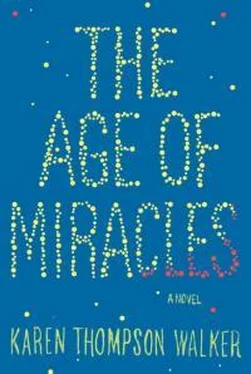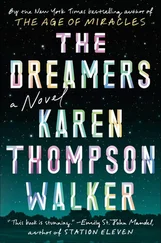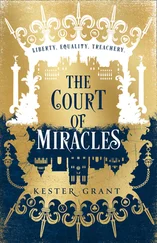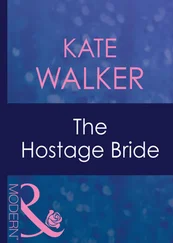“Are you watching this?” my mother said. We were not.
My mother had been an actress once. Her old commercials—mostly hair-care and kitchen products—lay entombed together in a short stack of dusty black videotapes that stood beside the television. People were always telling me how beautiful she was when she was young, and I could still find it in the fair skin of her face and the high structure of her cheekbones, though she’d gained weight in middle age. Now she taught one period of drama at the high school and four periods of history. We lived ninety-five miles from Hollywood.
She was standing on our sleeping bags, two feet from the television screen. When I think of it now, I imagine her cupping one hand over her mouth the way she always did when she worried, but at the time, I just felt embarrassed by the way the black waffle soles of her running shoes were twisting Hanna’s sleeping bag, hers the dainty cotton kind, pink and polka-dotted and designed not for the hazards of campsites but exclusively for the plush carpets of heated homes.
“Did you hear me?” said my mother, swinging around to look at us. My mouth was full of bagel and cream cheese. A sesame seed had lodged itself between my two front teeth. “Joel!” she shouted at my father. “I’m serious. This is hellacious.”
My father looked up from the paper then, but still he kept his index finger pressed firmly to the page to mark his place. How could we have known that the workings of the universe had finally made appropriate the fire of my mother’s words?
We were Californians and thus accustomed to the motions of the earth. We understood that the ground could shift and shudder. We kept batteries in our flashlights and gallons of water in our closets. We accepted that fissures might appear in our sidewalks. Swimming pools sometimes sloshed like bowls of water. We were well practiced at crawling beneath tabletops, and we knew to beware of flying glass. At the start of every school year, we each packed a large ziplock bag full of non-perishables in case The Big One stranded us at school. But we Californians were no more prepared for this particular calamity than those who had built their homes on more stable ground.
When we finally understood what was happening that morning, Hanna and I rushed outside to check the sky for evidence. But the sky was just the sky—an average, cloudless, blue. The sun shone unchanged. A familiar breeze was blowing from the direction of the sea, and the air smelled the way it always did back then, like cut grass and honeysuckle and chlorine. The eucalyptus trees were fluttering like sea anemones in the wind, and my mother’s jug of sun tea looked nearly dark enough to drink. In the distance beyond our back fence, the freeway echoed and hummed. The power lines continued to buzz. Had we tossed a soccer ball into the air, we might not have even noticed that it fell a little faster to the earth, that it hit the ground a little harder than before. I was eleven years old in the suburbs. My best friend was standing beside me. I could spot not a single object out of place or amiss.
In the kitchen, my mother was already scanning the shelves for essentials, swinging cupboards on hinges and inspecting the contents of drawers.
“I just want to know where all the emergency supplies are,” she said. “We don’t know what might happen.”
“I think I should go home,” said Hanna, still in purple pajamas, her arms wrapped around her tiny waist. She hadn’t brushed her hair, and hers was hair that demanded attention, having grown uncut since second grade. All the Mormon girls I knew had long hair. Hanna’s dangled near her waist and tapered at the end like a flame. “My mom is probably freaking out, too,” she said.
Hanna’s house was full of sisters, but mine was the home of only one child. I never liked it when she left. The rooms felt too quiet without her.
I helped her roll up her sleeping bag. She packed her backpack.
Had I known how much time would pass before we’d see each other again, I would have said a different goodbye. But we just waved, Hanna and I, and then my father drove her back to her house, three streets over from ours.
* * *
There was no footage to show on television, no burning buildings or broken bridges, no twisted metal or scorched earth, no houses sliding off slabs. No one was wounded. No one was dead. It was, at the beginning, a quite invisible catastrophe.
I think this explains why what I felt first was not fear but a thrill. It was a little exciting—a sudden sparkle amid the ordinary, the shimmer of the unexpected thing.
But my mother was terrified. “How could this happen?” she said.
She kept clipping and reclipping her hair. It was dark and lovely, thanks in part to a deep brown dye.
“Maybe it was a meteor?” I said. We’d been studying the universe in science, and I’d memorized the order of the planets. I knew the names of all the things that floated out in space. There were comets and black holes and bands of giant rocks. “Or maybe a nuclear bomb?”
“It’s not a nuclear bomb,” said my father. I could see the muscles clenching in his jaw as he watched the television screen. He kept his arms crossed, his feet spread wide. He would not sit down.
“To a certain extent, we can adapt,” a scientist on the television screen was saying. A tiny microphone had been pinned to his collar, and a newscaster was plumbing him for the darker possibilities. “But if the earth’s rotation continues to slow—and this is just speculation—I’d say we can expect radical changes in the weather. We’re going to see earthquakes and tsunamis. We might see mass plant and animal die-outs. The oceans may begin to shift toward the poles.”
Behind us, our vertical blinds rustled in the breeze, and a helicopter buzzed in the distance, the thrumming of its blades wafting into the house through the screens.
“But what could possibly cause something like this?” said my mother.
“Helen,” said my father, “I don’t know any more than you do.”
We all forgot about that day’s soccer game. My uniform would remain folded in its drawer all day. My shin guards would lay untouched at the bottom of my closet.
I heard later that only Michaela showed up at the field, late as usual, her cleats in her hands, her long hair undone, her red curls flying in and out of her mouth as she ran sock-footed up the hill to the field—only to find not a single girl warming up, not one blue jersey rippling in the wind, not one French braid flapping, not a single parent or coach on the grass. No mothers in visors sipping iced tea, no fathers in flip-flops pacing the sideline. No ice chests or beach chairs or quarter-sliced oranges. The upper parking lot, she must have noticed then, was empty of cars. Only the nets remained, billowing silently in the goals, they the only proof that the sport of soccer had once been played on this site.
“And you know how my mom is,” Michaela would tell me days later at lunch, slouching against a wall in imitation of the sexier seventh-grade girls. “She was gone by the time I got back down to the parking lot.”
Michaela’s mother was the youngest mother. Even the most glamorous of the other mothers were at least thirty-five by then, and mine had already turned forty. Michaela’s was just twenty-eight, a fact that her daughter denied but we all understood to be true. Her mother always had a different boyfriend at her side, and her smooth skin and firm body, her high breasts and her slim thighs, were together the source of something shameful we only dimly perceived but which we most certainly did perceive. Michaela was the only kid I knew who lived in an apartment, and she had no father to speak of.
Читать дальше












